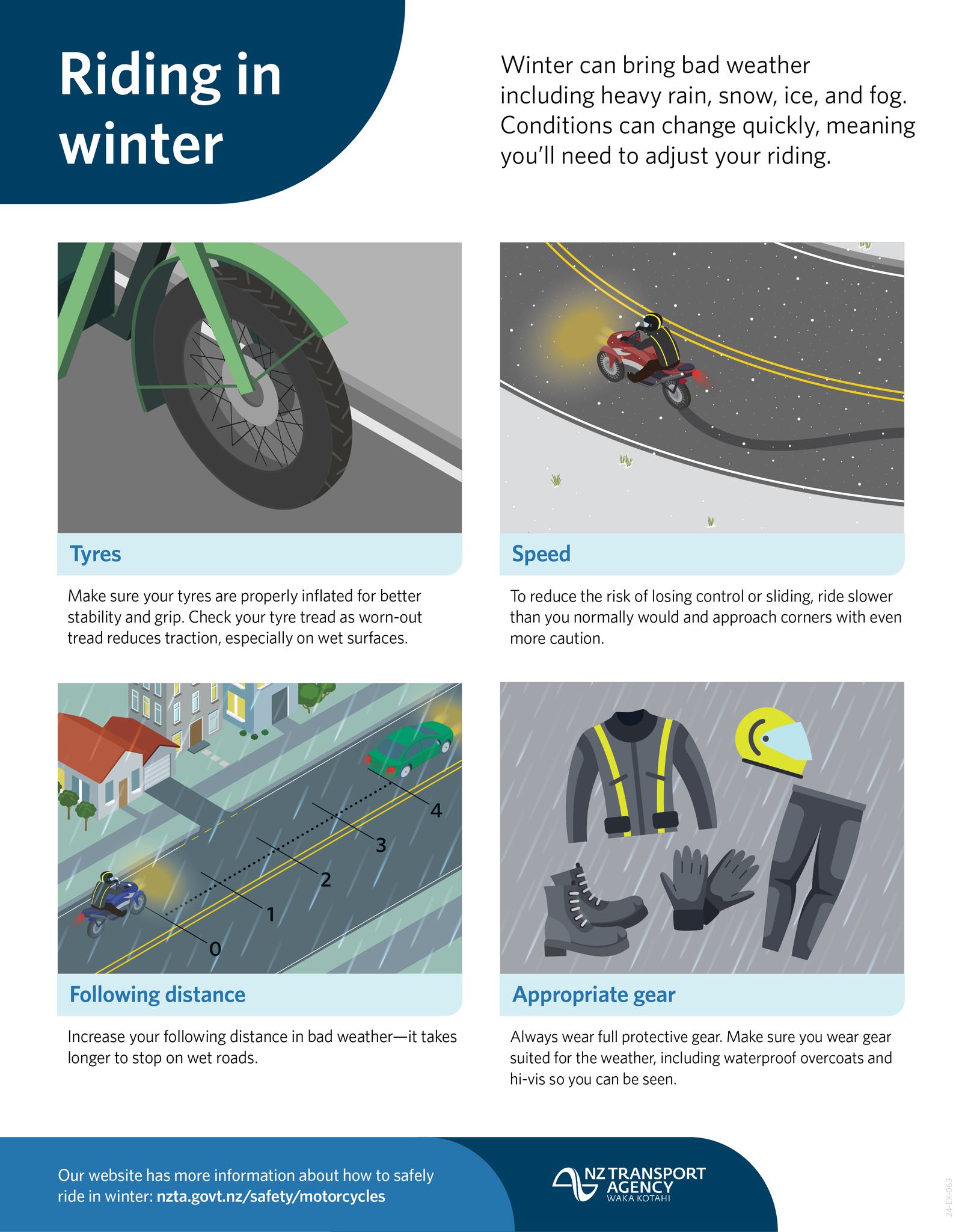Motorcycle Safety Tips
Motorcycle Crashes in South Canterbury
Between 1980 and 2025 there have been 400 death and serious injury crashes involving motorcycles and mopeds on South Canterbury roads.
Over 30% of these crashes involved no other party, therefore the cause of these crashes is predominantly the motorcycle rider. The at-risk demographic for motorcyclists in our area is those aged 15-24 years.
Advice for Drivers: Look Twice for Motorcyclists
Whether in urban or rural in urban environments we encourage vehicle drivers to look twice to save a life at intersections. Poor observation and failure to give way are common mistakes car drivers can make.
Ride Forever
We encourage all riders to undertake regular training and upskilling to keep themselves safe.
Ride Forever is an evidence-based ACC initiative which offers subsidised on-road coaching to improve your riding skills and knowledge. It is the only nationally available, certified rider coaching programme in New Zealand. There are multiple levels of on-road coaching available to suit all experience levels, from urban scooter riders through to courses for experienced riders. Ride Forever courses are delivered by experts and prices start at just $20.
Some insurance companies now recognise the value of Ride Forever courses and will offer discounts to people who can provide evidence of completing Ride Forever courses. From 1 July 2026, ACC will also introduce a 25% registration discount for riders who have successfully completed advanced rider training.
Motorcycle Gear Ratings
MotoCAP (Motorcycle Clothing Assessment Program) is a joint Australia-New Zealand scheme that rates motorcycle gear out of five stars, taking into account:
- Abrasion Resistance: How well the material resists tearing and wearing away when slid against a road surface.
- Seam Strength (Burst): How well the garment's seams and fastenings hold together during a crash, as the protective materials are only effective if the garment remains intact.
- Impact Protection: The ability of integrated armor or impact protectors to absorb or dissipate direct impact forces in high-risk areas like shoulders, elbows, hips, and knees.
Learning to Ride
Get the Right Training and Choose a Suitable Bike
If you're new to motorcycling, the best place to start is by taking a Basic Handling Skills course with a qualified motorcycle trainer. Our driver licensing page features a list of local driving instructors including those who specialise in motorcycle licences.
If you are the holder of a learner or restricted motorcycle licence you can only ride a motorcycle which is LAMS compliant.
Riding Tips
We say "ride your own ride" meaning you should always ride within your ability and keep something in reserve. If you're riding with friends, don't try to match the pace of other riders. Ensure you have sufficient performance in both your bike and your ability to survive the unexpected. This includes positioning yourself within your lane where you have the best ability to see the greatest distance around curves and travelling at a speed which gives you the greatest chance to react to unexpected hazards.
Riding in Winter
While many riders park their bikes up over the winter months, if you are going to keep riding, here's some things to consider:

Motorcycle Safety Events
We also support motorcycle safety events run by other parties including the Performance Cornering courses run by Love Motorcycle Training and the Kickstart Bike & Licence Expo organised by Christchurch City Council and Waimakariri District Council.

